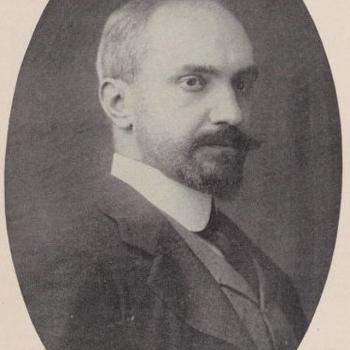Here is what Plato had to say about the body and the soul:
Does not purification consist in this . . . in separating as much as possible the soul from the body, and in accustoming it to gather and collect itself by itself on all sides apart from the body, and to dwell, so far as it can, both now and hereafter, alone by itself, delivered, as it were, from the shackles of the body? (Phaedo)
Body and soul. Separate. The body impure . . . the thing that drives our poor, innocent souls to sex, selfishness, and overindulgence. The soul, that eternal, heaven-hungry thing; that incredible, detachable, part of ourselves that will live in bliss forever . . .  if only it can first conquer and then separate from that nasty, nasty body.
if only it can first conquer and then separate from that nasty, nasty body.
That’s the thinking that drove the Western World all through the reign of Christendom. It fills the parking lots of mega-churches to this day. Reinforcing that body/soul dichotomy is why the early Christians worked so hard to stamp out the philosophy of Epicurus, whose philosophy would nowadays be called secular moral realism, a naturalistic worldview.
The dualists did a good job. The term “Epicurean” still has negative connotations.
For Plato and the Platonists, it’s all about a disembodied soul and the next world. For Epicurus and the Epicureans, it’s all about the connection of body and consciousness in this world, now. This very old argument between two very different world views is why the word spiritual makes so many Humanists nervous. It implies the continuation of an age-old argument in the Western tradition, that of separating the physical from the spiritual, head from heart. For the past two-and-a-half millennia, naturalists have lost the fight. (But who’s bitter?) Naturalists are still here insisting that there is no separation between our thoughts and our bodies, that all our thoughts are embodied thoughts necessarily.
And when we die, as Epicurus put it, our atoms disperse.
I don’t know who’s correct—or even if the question is an either/or—but entertaining clear dichotomies clarifies thinking. And this dialectic brings into bold relief the bigger question—the basic question of religion or philosophy—How should I live my life?
Am I living my life in order to prepare for the next one by keep my soul pure, or to get it pure again? Or are my thoughts and actions part of a physical continuity—a self—that will cease when what we call life ceases?
Basic questions each of us does well to answer as best we can. Seriously: how should I live my life? How well do my commitments actually match my goals?
What do I owe to my self, to my soul, to humanity, and to world?
Epicurus focused the question this way:
You are not master of tomorrow, yet you postpone your happiness. Life is wasted in procrastination.
If human beings do indeed have a detachable soul, Plato was most likely right about what to do: get as far away from that body as possible.
However, the naturalist Epicurus taught that in order to live a good life, we have to stop and think about it. Think it through. Look at the bigger picture. Humanists also get itchy around the word “spiritual” when it comes before “practice,” but whatever you call it, we all need it.
The Epicureans and the Stoics and the Buddhists were all very suspicious of what we nowadays call self-talk. This inner dialogue very clearly creates our attitudes about our lives, yet is the self-talk constructive, or even coherent, for that matter?
Might it be lying to us?
For these meditative traditions, that is the point of daily practice—getting hold of our self-talk and giving it direction.
At its essence the spiritual exercise of meditation is about taking some time out of time to have a deep conversation with yourself, an inner dialogue. Meditation enables us to talk with ourselves, and, the most difficult challenge of all—in meditation we sometimes actually LISTEN to ourselves and find our arguments convincing!
You are not master of tomorrow. How about sitting down and having a talk with yourself about that?















